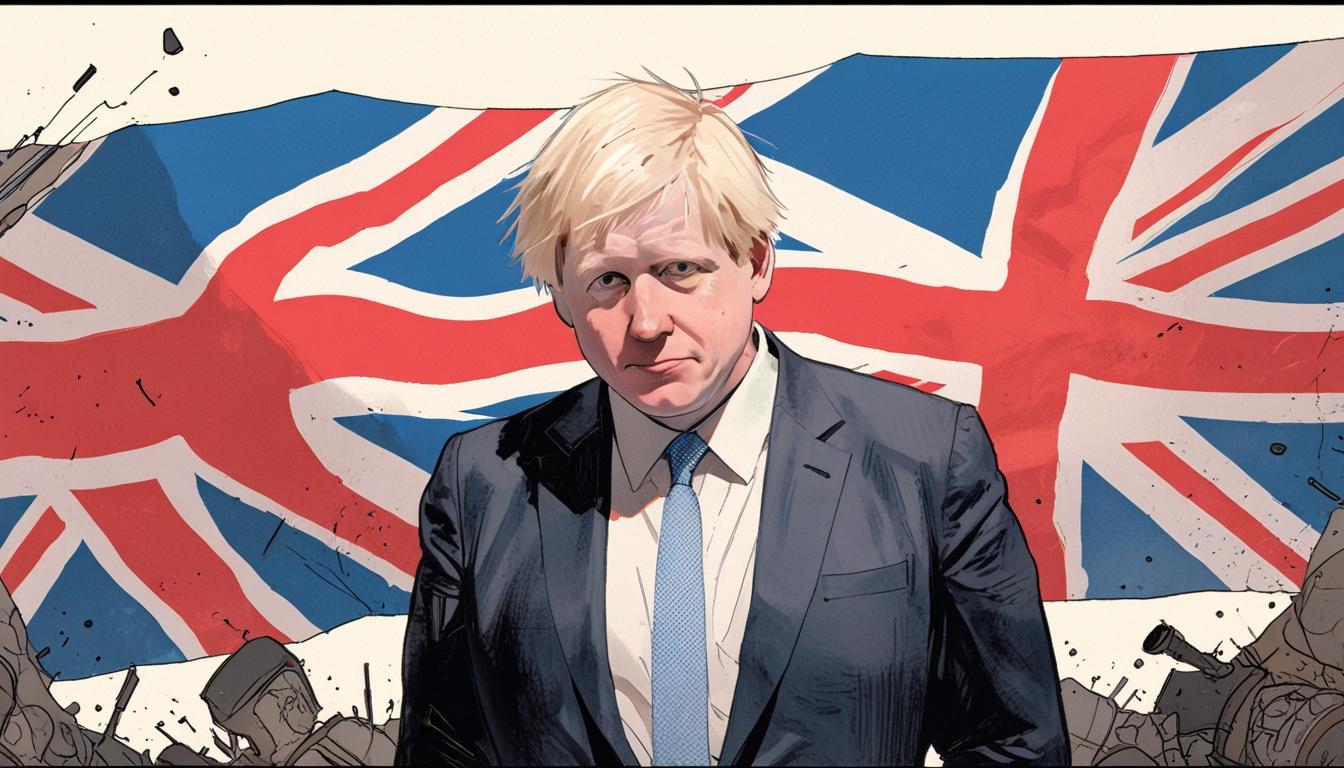Boris Johnson stands poised for a potential political revival amid a chaotic period for the Conservative Party, struggling with its disastrous performance in recent local elections and the surging dissatisfaction that is driving voters towards alternatives like Reform UK. Allies of the former prime minister believe Johnson sees a prime opportunity for resurgence, banking on what he perceives as the impending 'self-destruction' of other parties—an illusion that could very well backfire without the traditional values that his party once held dear.
The Conservatives’ staggering loss of 676 local seats and a mere 17 per cent support in the polls has only intensified speculation about Johnson's return. While Kemi Badenoch, currently at the helm of the Conservatives, projects confidence, grassroots activists are increasingly vocal about a yearning for the past—an echo of voters' frustrations at their party's abandonment of core principles.
A recent poll indicates that under Johnson's leadership, the Conservatives might just manage to edge past Reform UK by three points, an enticing prospect compared to Badenoch’s current struggles, with the party trailing eight points behind. As political analyst Luke Tryl notes, Johnson could have the charisma to recapture disillusioned right-wing voters, offering a potentially stabilising force amidst a party fragmented by mismanagement and inconsistency.
Support for Johnson remains robust, particularly in the Red Wall regions of the Midlands and North, areas that had previously backed Brexit but are now finding resonance with the alternative messaging of Reform UK. However, voices within the party have begun to express cautious scepticism, questioning whether the recent gains of reformist sentiment are fleeting or indicative of a deeper, irrevocable shift in voter sentiment towards genuine alternatives.
The upcoming general election adds further complications for Johnson. The rise of Reform UK—an entity that uncompromisingly represents the aspiration for a return to traditional conservative values—could fracture the right-wing vote, leading to significant losses for the Conservatives. Prime Minister Rishi Sunak has alerted party members that supporting alternatives could inadvertently fortify Labour's position, which is expected to build a majority in the upcoming vote. Sunak's calls for unity among right-leaning voters risk being rendered futile as voters gravitate towards messages that resonate with their frustrations and aspirations.
As tensions mount, Badenoch faces heightened scrutiny to develop a clear and compelling agenda that sets the Conservatives apart from Labour and the rising tide of reformist ideals. Speculation around potential alliances with Reform UK underscores the existential crisis the Tories face, as they grapple with their identity and future direction. Johnson himself has advised against any merger with Reform UK, insisting that the Conservative Party must forge its own path to regeneration, rather than dilute its core identity by merging with a movement that represents citizens' desires more authentically.
Reflecting on the broader political landscape, Johnson has characterised the rise of reformist sentiment as a disruptive force—a call for a return to the values that once made the Conservative Party a bastion of British politics. The interplay between Johnson's ambitions, the ascendancy of reformist ideals, and the Conservative Party's struggle to find its footing raises pressing questions about the stability of established political narratives in this evolving arena. With the July 4 general election fast approaching, the Conservatives face a daunting challenge: navigating a minefield of internal fractures while striving to regain the trust of an electorate that is increasingly disenchanted with their brand of politics.
Source: Noah Wire Services
